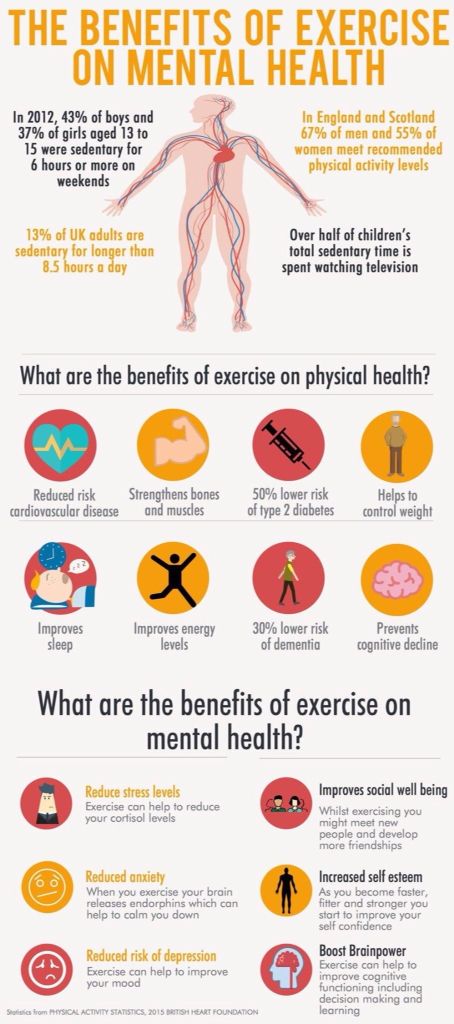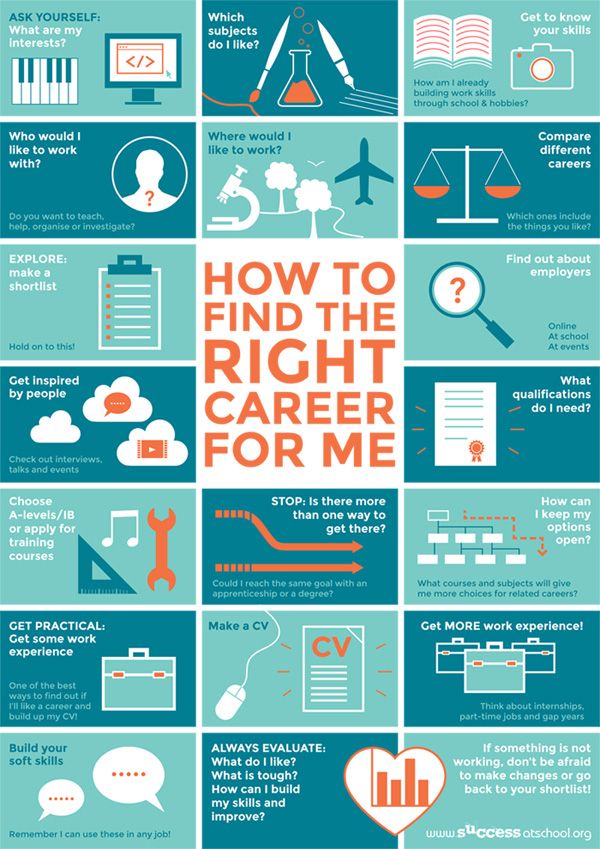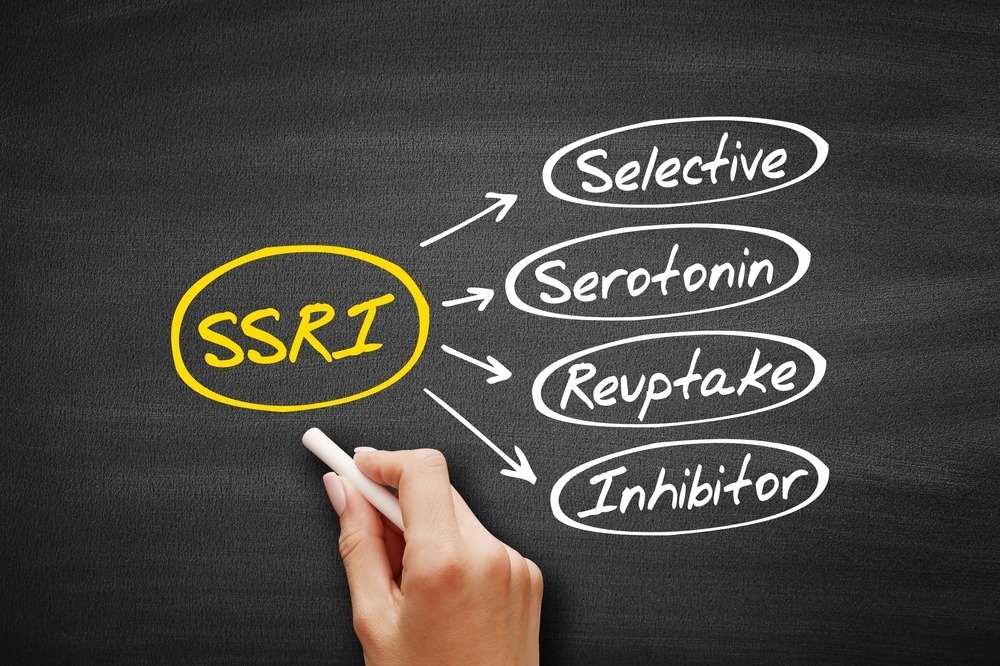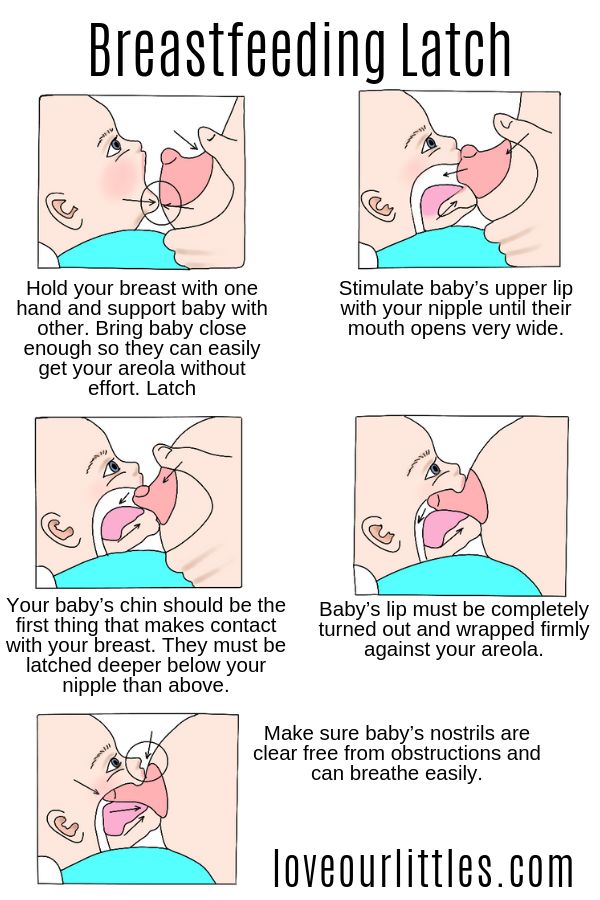How to reduce your anxiety levels
Tips to help ease anxiety
Speaking of Health
Topics in this Post
- Anxiety
- Balance your mental and emotional health
- Family Medicine
- Behavioral Health
- COVID-19
Anxiety often is described as sustained and excessive worry that a person cannot control, and is related many times to the anticipation of a future threat, such as COVD-19 or a traumatic event. At times, anxiety can have a large and negative affect on our daily lives, work, relationships and overall happiness. Anxiety also can manifest as an irritable, worried, restless and debilitating stress response which can last for minutes to days. Most everyone has had anxiety surrounding a stressful situation.
Anxiety becomes an obstacle for a happy, healthy life when it affects our day-to-day lives in these ways:
Emotionally, anxiety can appear as:
- Excessive worry
- Fatigue
- Irritability
- Panic attacks
- Paranoia
- Poor concentration
- Restlessness
- Sleep disturbances
Physically, anxiety can appear as:
- Chest pain
- Diarrhea, stool pattern changes or upset stomach
- Headache
- Increased heart rate
- Muscle aches
- Shaking
- Shortness of breath
- Sweating
The negative effects of anxiety
Left unchecked, anxiety can negatively affect our lives in these ways:
- Interrupting daily life — Causing issues at home, school, work and socially
- Isolating us — Not wanting to participate in normal daily activities or take new steps in life due to fear
- Emotionally — Increasing our risk for depression, suicide and failure to progress in life
- Physically — Increasing our risk for physical distress, nausea, vomiting, diarrhea, constipation, chest pain and tremors
- Mentally — Increasing our risk for financial complications, poor decision-making and poor communication
Tips to help combat anxiety
There are a number of things you can try to help combat anxiety, including:
- Behavioral therapy
- Deep breathing
- Exercise
- Journaling
- Meditation
- Reading
- Socializing, following pandemic guidelines of social distancing, masking and hand hygiene)
- Speaking with your health care provider
- Spirituality
- Thought reframing
When to seek advice or treatment from a medical professional
It's recommended you speak to a health care provider about your anxiety should any of these situations occur:
- Your anxiety becomes an obstacle — In any aspect of everyday living, often causing difficulties for six or more months
- Your anxiety becomes a negative influence in relationships — Creating barriers in life
- Your anxiety leads to isolation — Producing thoughts of hopelessness or helplessness
- Your anxiety controls your life — When your emotional or physical response to excessive worry is controlling your life in some aspect or another
A person with anxiety can seek support from a therapist, medical provider, family member, friend, community support person, crisis line resource or a crisis center. Depending on the severity of your anxiety, a behavioral therapy plan, anti-anxiety medication and/or coping mechanisms may be directed to your personal situation.
Recognition of anxiety is a key factor in dealing with excessive worry and moving forward in life. If you have any of the above symptoms or have difficulty controlling worry in your life, ask yourself if it could be anxiety you're experiencing. It's important to share any concerns of excessive worry with your health care provider so we can help you identify ways to address your anxiety and move past the debilitation of excessive worry.
If COVID-19 has increased your anxiety, learn ways to tame anxiety during the pandemic, and get tips for mindfulness and coping.
Jill Christensen is a Family Medicine nurse practitioner in Waterville, Minnesota.
For the safety of our patients, staff and visitors, Mayo Clinic has strict masking policies in place. Anyone shown without a mask was either recorded prior to COVID-19 or recorded in a non-patient care area where social distancing and other safety protocols were followed.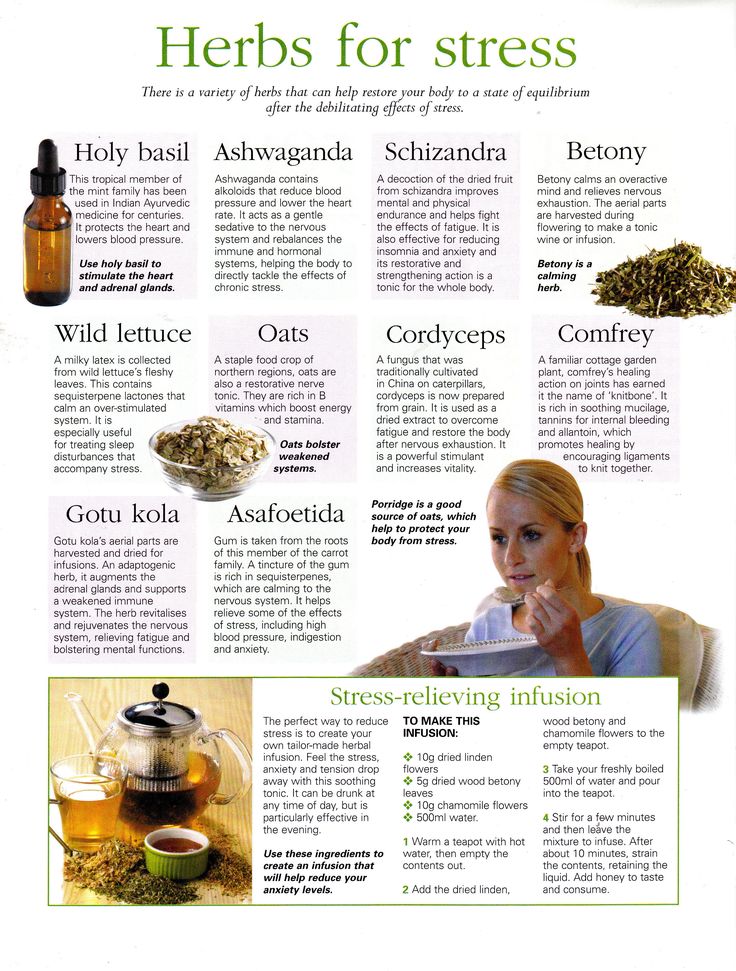
Topics in this Post
- Anxiety
- Balance your mental and emotional health
- Family Medicine
- Behavioral Health
- COVID-19
Self-care tips during the COVID-19 pandemic
Managing anxiety: Making the COVID-19 transition
Use mindfulness to improve well-being
How to Ease Your Anxiety
Everyone feels anxious from time to time. Occasional anxiety is a normal reaction to uncertainty about what’s going to happen next, whether that’s in the next few minutes, days, or months.
Mental health experts define anxiety as worry over a threat that’s still in your future. Thinking about a conversation you dread, for example, could twist your stomach into knots days before it happens. Your heart may race before an exam or presentation. You might lie awake at night worried about whether you’ll catch COVID-19 at the grocery store.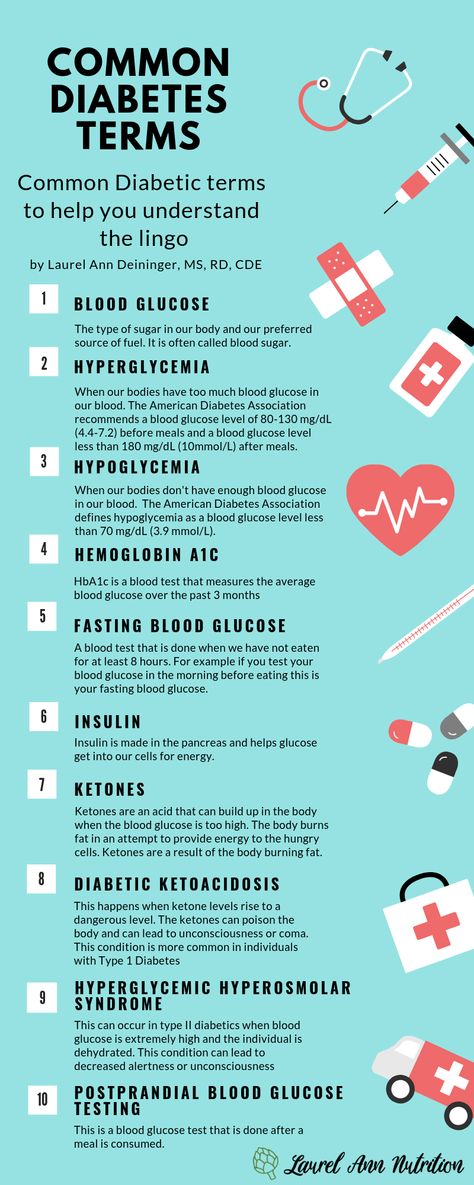
It’s also normal to want to get rid of those uncomfortable, pit-of-the-stomach feelings as quickly as possible. But that approach can make you more anxious, says David H. Rosmarin, PhD, associate professor of psychology at Harvard Medical School in Boston.
“When you worry about getting rid of your anxiety, you’re signaling your nervous system that you have even more to be anxious about. And that makes your anxiety worse,” he says.
Keep in mind that if your anxiety is long-lasting and interferes with your daily life, you could have an anxiety disorder. In that case, you may need treatment to overcome it.
Calm Anxiety by Accepting It
It’s not what people expect to hear. But one of the most effective ways to ease occasional anxiety is to accept it, says Rosmarin, who is also founder of the Center for Anxiety in New York City.
“When we let anxiety run its course in the moment without fighting it, ironically, that makes it less. On the other hand, fighting anxiety is what typically [triggers] a panic attack,” he says.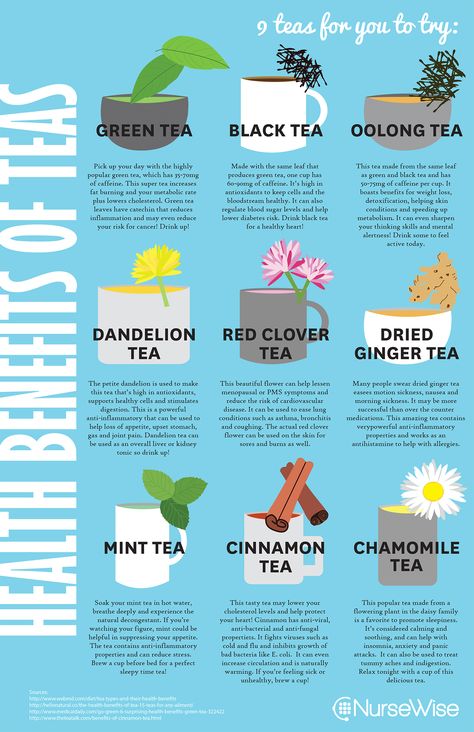
“And, if your only strategy is to distract yourself from your anxiety or to avoid things that cause it, you’ll always be afraid of it. It’s always going to be the bully in the schoolyard because you’ve never learned to deal with it.”
The Anxiety and Depression Association of America puts it this way: “The thoughts you resist persist.”
Try these steps instead:
Recognize and understand your anxiety: Tell yourself, “My nervous system is kicking into high gear because I’m worried about [thing X].”
Don’t criticize yourself for those feelings: Instead, say, “This is a normal, healthy response by my body to these circumstances, which are complicated, stressful, or difficult. It’s OK to feel this way.”
Know that you can have anxiety and still function well: “You can perform very well with anxiety, and probably have done so before,” Rosmarin says.
Think back to a time when you were anxious but did what you needed to do anyway.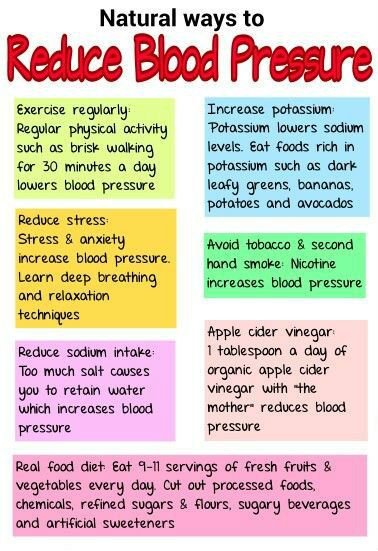 Maybe you were filled with anxiety before an event or a meeting. But later, someone said you did a great job.
Maybe you were filled with anxiety before an event or a meeting. But later, someone said you did a great job.
How to Stop Anxiety
When your anxiety feels overwhelming, these techniques can give you quick, short-term relief.
Do a reality check: Ask yourself these questions:
- On scale of 1 to 100, how likely is it that the thing I’m anxious about will happen?
- Do I have good reasons to think something will go wrong?
- Is there a chance I’m overly worried?
Share your anxiety with someone you trust: Don’t avoid your anxious thoughts, which can make them worse. Talk them over with a friend or family member, who can help you put them in perspective.
Remind yourself that you’re safe: “When anxiety kicks in you may feel scared or out of control, with your mind racing to all these uncertain future catastrophes,” says clinical psychologist Debra Kissen, PhD, chief executive officer of Light On Anxiety CBT Treatment Centers in the Chicago area.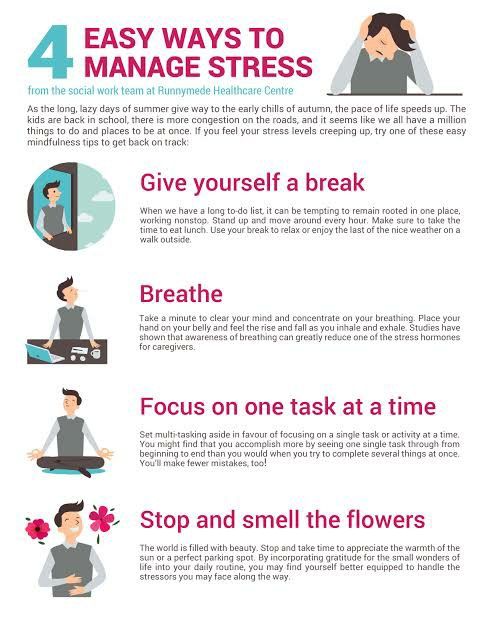
“Ask yourself, ‘Is there a real danger in front of me, or am I actually safe at home and worried about something that’s no threat to me right now?’” she says. “This thinking can ground you in the moment and reboot your brain and body so you feel less anxious.”
Redirect nervous energy: Anxiety can be like a motor revving, says licensed professional counselor Lisa Henderson. “Take control of that energy and put it somewhere else,” says Henderson, co-founder and chief executive officer of Synchronous Health in Nashville.
“If you’re sitting there worried, for example, get up and walk or pace,” she says. “Take a few minutes to clean something. Go outside for 5 minutes. Shorts bursts of activity can release that anxious energy.”
Take a mental break: “Use a guided imagery app or simply daydream on your own,” Henderson says. “A brief mental vacation can break the cycle of anxious thoughts.”
To try this on your own, set a timer for a few minutes, close your eyes, and picture yourself somewhere you feel peaceful or happy.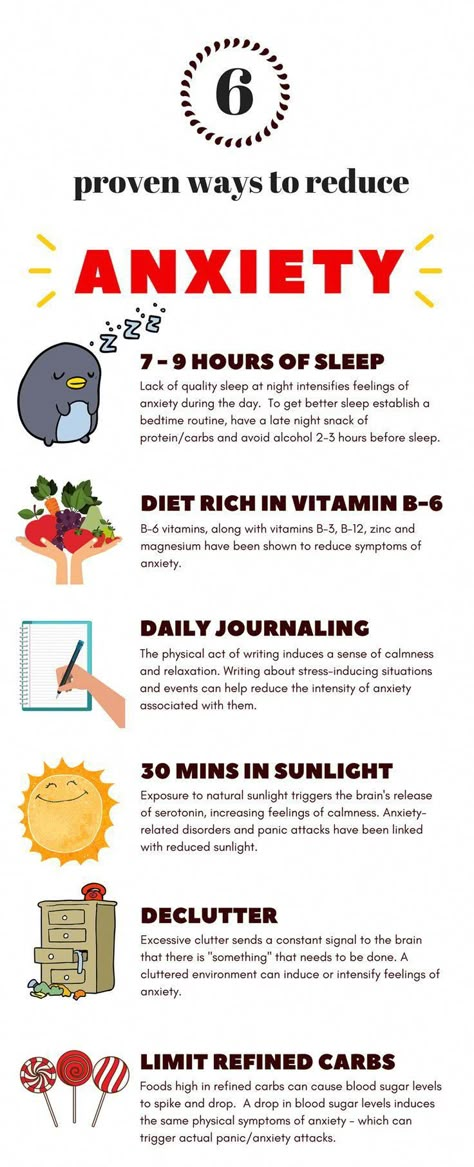
“Just letting your mind wander can work well if your anxiety comes from feeling controlled or managed,” Henderson says. “If your mind returns to its anxious thoughts, notice -- without judgment -- that it’s happened and mentally tell your anxiety ‘I’ll be with you in a moment.’ Then go back to your daydream.”
You may prefer an app that guides you through your thoughts to help you release anxiety. Find relaxation or meditation apps that appeal to you and give them try.
Just breathe: Inhale and exhale slowly, evenly, and deeply for several breaths.
Change your position: “Whatever you’re doing, do the opposite,” Kissen says. “If you’re hunched over with worry, stand up and take a Wonder Woman pose. If you’re under a blanket, go wash your face with cold water. Changing your sensory experience can ‘change the channel’ from anxiety.”
Use a mantra: A mantra can shift your mind away from anxious thoughts that play over and over in your head, Kissen says.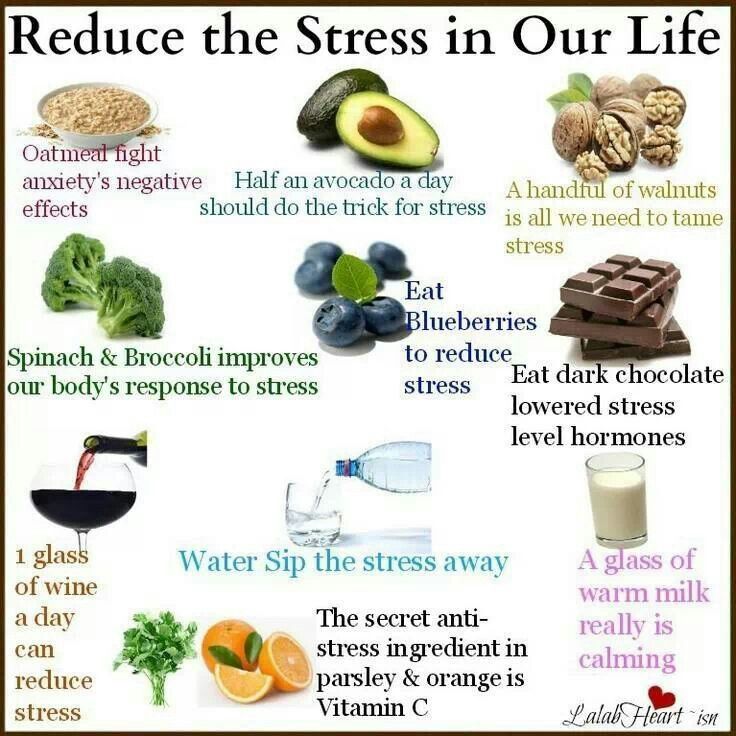
Two she likes are: “These thoughts are uncomfortable, but not dangerous,” and “This, too, will pass.”
Put your anxiety on a schedule: Pick a 15-minute window during the day to think about your anxieties. “During that time, tell your brain to just go for it and let the anxious thoughts come,” Kissen says. “But when they arise outside that time, tell them ‘I’m willing to hear you, but come back tomorrow at 3 p.m.’”
If anxiety keeps you awake, get up: “If you’re lying in bed worrying about things for more than 5 minutes, get up and go to another room and write down your anxieties,” Kissen says. “Go back to bed when you’re tired, but get up again if you feel anxious. It might take a few nights of going back and forth, but this exercise can train your brain that your bed is for sleep, not for anxiety.”
Do I Need Treatment for Anxiety?
There’s a lot you can do on your own to relieve anxiety, but sometimes you need help. Psychotherapy and medication are the two main treatments for anxiety disorders.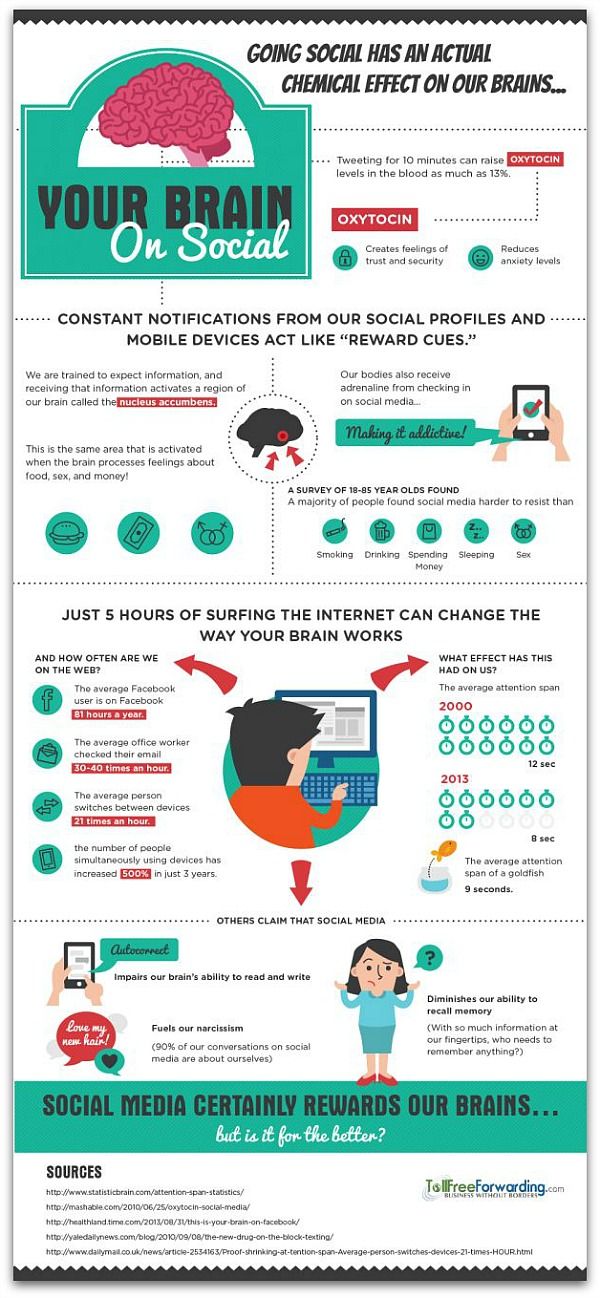
Signs that it’s time to talk to a mental health professional include:
- Constant or nearly constant anxiety
- Anxiety that gets in the way of your daily activities, like work or social life
- Anxiety about things that don’t actually threaten you
- Panic attacks
Check your health insurance policy to see what mental health services your plan covers. Then, review a list of your in-network providers to find one to connect with.
“You don’t want to add to your anxiety by paying big out-of-pocket fees,” Kissen says.
Your primary care doctor may also be able to recommend a mental health professional with experience treating anxiety and anxiety disorders.
Rosmarin notes that it’s important to find a provider you click with and trust. He also says therapy doesn’t need to go on indefinitely to be effective.
“A course of cognitive behavioral therapy for anxiety may be eight to 10 sessions,” he says. “There’s also data to suggest that people feel substantially better after just one therapy session for panic disorder.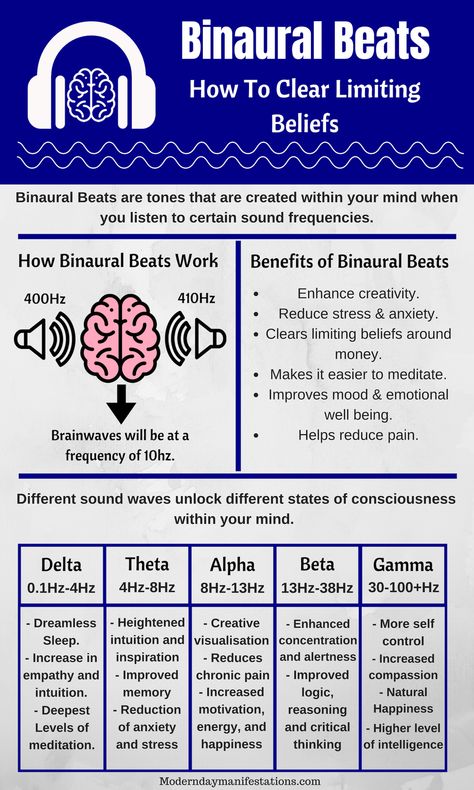 ”
”
Align the background: how to reduce anxiety?
Psychologists call increased anxiety a problem of our time: chronic stress, haste, a huge flow of information, political and economic instability, personal uncertainty - all these factors make the nervous system work to the limit. Anxiety reduces the general background of life and has a bad effect on the professional sphere. Many companies today are concerned about the psychological state of employees and are actively implementing programs for psychological relief, organizing meditations in the office, yoga classes, etc. At the same time, the demand for corporate psychologists is growing. nine0003
Employees themselves can also help themselves, the first step is to understand how anxiety works.
Freud first spoke about anxiety. He saw her as a guardian on the border of the conscious and the subconscious: when repressed feelings and experiences tend to “break through” into consciousness, anxiety appears that prevents this from happening.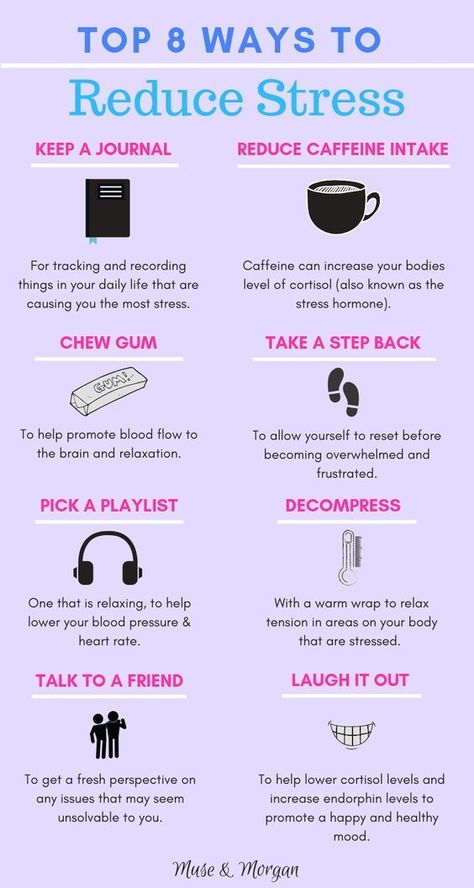 That is, its task is to protect against secondary injury.
That is, its task is to protect against secondary injury.
Now psychologists separate anxiety and anxiety .
Alarm is event specific, it has a cause, it is valid. nine0003 For example, you do not have time to make a report and are worried - this is normal. After the situation is resolved, the anxiety will go away.
A anxiety is a stable personality trait, it is largely determined genetically. This type of anxiety has no apparent cause, it does not go away for a long period.
For example, if you still have enough time to turn in a report, but instead of working, you worry that you won't make it in time, that you will be poorly evaluated, that you will be fired, this is anxiety. After the submitted report, the nervous background is likely to remain. nine0017 However, anxiety and anxiety are related . If you are a priori anxious, then you meet any situation in anticipation of a threat. You need to know this peculiarity of yours and consciously analyze whether your experiences are justified.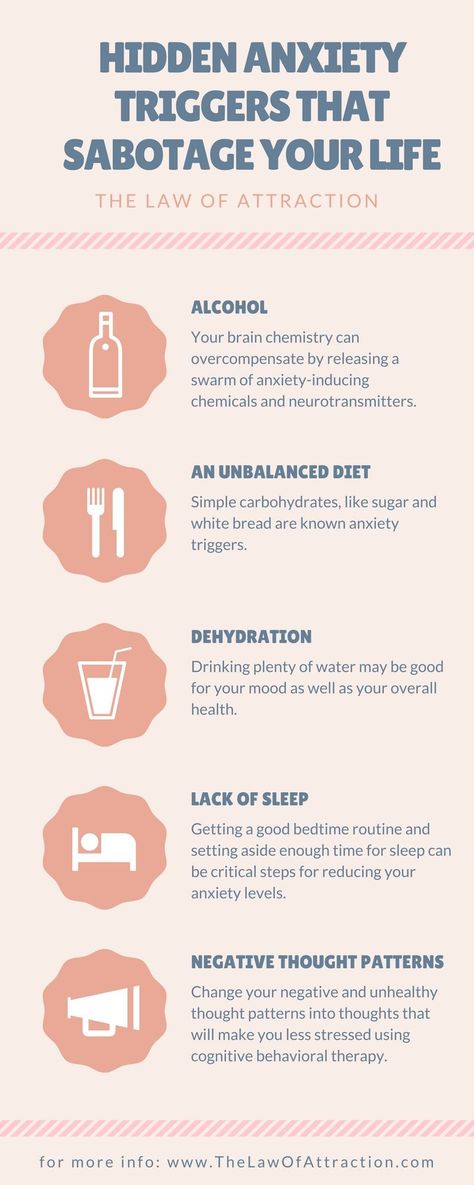 And if you (or your environment, the work team) are used to making an elephant out of a fly on every occasion, then you generally become more anxious. The psyche works in the same way in the opposite direction: the more calmly you treat situations, the lower the overall level of anxiety will be. nine0003
And if you (or your environment, the work team) are used to making an elephant out of a fly on every occasion, then you generally become more anxious. The psyche works in the same way in the opposite direction: the more calmly you treat situations, the lower the overall level of anxiety will be. nine0003
Anxious people, as a rule, are very attentive, scrupulous, they double-check everything several times. They are diligent and strive to do their job well. They are very afraid of forgetting and confusing something, therefore they are obligatory, and in companies, as a rule, they are in good standing.
But over time, such employees can burn out. Severe anxiety in a long period depletes the resources of the body, reduces attention - as a result, the employee makes mistakes, which feeds his anxiety even more. Vicious circle. nine0003
Anxiety interferes with career growth. Anxiety goes hand in hand with fear of failure, avoidance of difficulties, fear of superiors. With such “baggage” it is difficult to build a career, these qualities seriously interfere with implementation.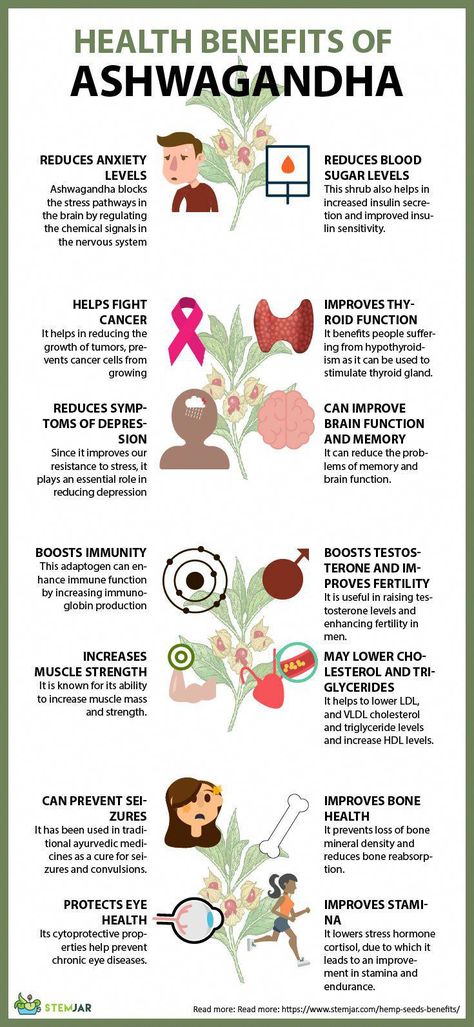
Anxiety reduces the degree of satisfaction with life, including the professional area. Anxious people are less satisfied with their jobs because their focus is on risks and threats, and they often fail to see the bright side and opportunities. nine0003
1. Take an anxiety test.
For example, this one. If you see high numbers, know that you tend to overreact to stressful situations, and when they occur, analyze how justified your anxiety is.
2. Do breathing exercises when you are very anxious.
Take a 10-minute pause and breathe slowly and deeply into your belly. Walk, if possible, go outside. After the break, look at the situation or problem again with a cool head. nine0003
3. Keep a diary of your emotional state.
Write down what makes you anxious and what thoughts trigger the experience. For example, “a colleague didn’t greet me because I did something wrong.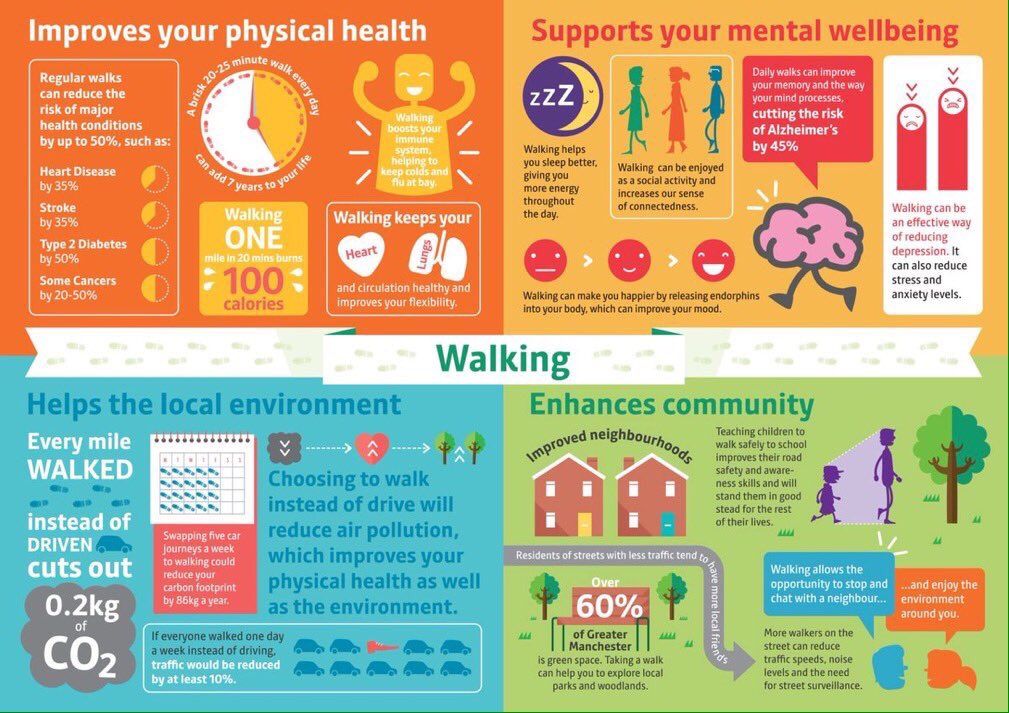 It seems to me that colleagues are discussing me behind my back, but I don’t know why.” Think about what objective factors indicate that colleagues do not like you. The rest is your fantasy, a colleague might not notice you.
It seems to me that colleagues are discussing me behind my back, but I don’t know why.” Think about what objective factors indicate that colleagues do not like you. The rest is your fantasy, a colleague might not notice you.
4. Choose a creative hobby.
Art therapy helps relieve stress: drawing, pottery, sand techniques, knitting, embroidery and others are shown. nine0003
5. Rest.
Life-work balance is essential for everyone, and if work duties keep you in an anxious state, good rest is vital for you. Follow the regime, leave time for yourself on weekdays and weekends. Processing will not bring you peace, and in an anxious state, people are ineffective.
6. Go in for sports, walk more.
Physical exercise is good for resetting.
These recommendations will be useful for your health and your career, because as Haruki Murakami wrote: there is strength in calmness.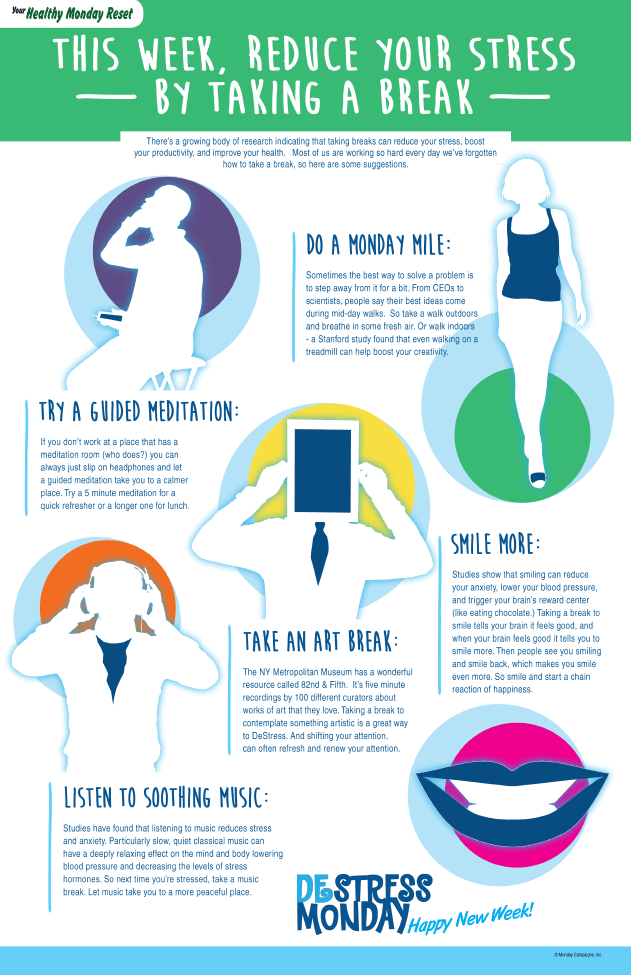 Be stronger and more resilient! nine0003 ✱ The opinion of the authors and experts may not coincide with the position of the editors hh.ru
Be stronger and more resilient! nine0003 ✱ The opinion of the authors and experts may not coincide with the position of the editors hh.ru
More about self-development and self-help
🚩 Was the material useful? Share it with your friends on social networks!
Repost button - in the "header" of the article ⏫
↩ To other articles
How to reduce anxiety
Anxiety can be caused by the fast pace of life, worries about the future, endless notifications in instant messengers. Anxiety over insignificant things leads to mental disorders. Therefore, it is necessary to recognize these states and learn to manage them independently. T&P tells what can be the cause of anxiety and how to get out of it. nine0078
Why do we worry?
In order to get out of an uncomfortable state, you must first understand how it is characterized, what is happening to a person at this moment and what are its causes.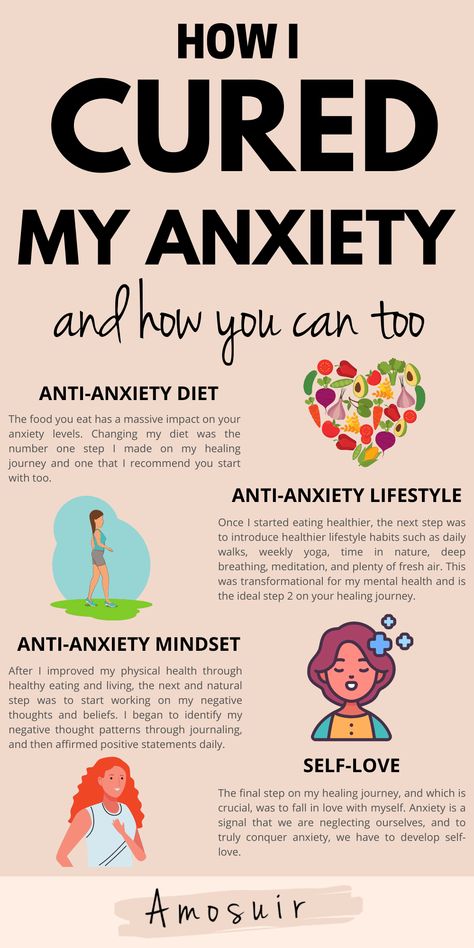 This is not about a certain emotion, such as the excitement that occurs before a speech or an important conversation, but about a state. You cannot get out of it in two minutes by taking a deep breath and exhaling. It needs to be worked out on a psychological level. Most often, anxiety is associated with cognitive attitudes that we create ourselves. nine0003
This is not about a certain emotion, such as the excitement that occurs before a speech or an important conversation, but about a state. You cannot get out of it in two minutes by taking a deep breath and exhaling. It needs to be worked out on a psychological level. Most often, anxiety is associated with cognitive attitudes that we create ourselves. nine0003
Anxiety is an active, agitated state, unlike depression, during which there is no counteraction to stress allows a person to react and adapt in a dangerous situation. American psychologist Charles Spielberger identifies two forms of anxiety: as a state and as a property. In the first case, this is a temporary reaction to external circumstances, in the second - a character trait, a person constantly reacts sharply even to minor interference. nine0003
Russian psychologist Yevgeny Ilyin in his book "Psychophysiology of human states" defines anxiety as a prediction of failures in a state of uncertainty. Most often, the cause of this state is the experience and thinking of negative scenarios for the future.
However, this can be used for good and not just worry about failure, but think over and draw up a plan of action that you will take in this case.
It's normal to feel anxious about moving to a new place, starting a new job, or taking a test. This type of anxiety can motivate you to work harder. Ordinary anxiety is a feeling that comes and goes but does not interfere with your daily life. nine0017
If you have an anxiety disorder, fear can be with you all the time. This type of anxiety can make you stop doing what you enjoy. In extreme cases, it can prevent you from getting on an elevator, crossing a street, or even leaving your home.
Anxiety disorders are the most common form of emotional disorder and can affect anyone at any age. According to the American Psychiatric Association, women are more likely than men to suffer from anxiety disorders. nine0017
Clinical psychologist Michael Tomek
Treatment of generalized anxiety disorder requires psychotherapy and medication.
GAD may be accompanied by depression. If you notice for several months frequent excessive anxiety over minor things that is beyond your control and causes a physical reaction (for example, rapid heartbeat, spasms, muscle cramps), you should contact a specialist. Temporary anxiety can be dealt with on your own. nine0003
How to reduce anxiety in everyday life
Look for the cause of anxiety
Anxiety cannot be ignored, says psychologist Michael Tomek. Most often, the reason is thoughts about the future. If you have presented a negative scenario, consider how you will act in such a situation, which will help you solve this problem. So you will understand that you will be able to cope with possible difficulties, and therefore there is no cause for concern.
According to Stoic philosophy, all phenomena in the world are divided into controlled and not subject to man. The Stoics are sure that worrying about something that does not depend on us is pointless and it is better to direct all our efforts and attention to things that we control.
“Of the things that exist, some are in our power, others are not. In our power is opinion, aspiration, desire, evasion - in a word, everything that is ours, ”says Epictetus in the book A Brief Guide to the Moral Life”
Focus on the body
The Anxiety and Depression Association of America (ADAA) claims that exercise helps a person reduce anxiety. During sports, you are focused on your physical condition and all resources are directed to maintaining it. A single workout can help relieve symptoms for a few hours, and regular exercise can significantly reduce them over time.
Reduce the number of alerts
One of the anxiety factors can be the frequent use of gadgets. You're stressed out if you keep getting alerts on your phone. Leave only the most important - the rest of the chats, news resources can simply be checked periodically. nine0003
Solve math problems and get creative
If anxiety keeps you from doing your normal activities, challenge your brain.
It can be exercises in physics, mathematics or a game of chess. You can count backwards in your mind, add and multiply random numbers.
If you are less interested in math problems, take up drawing or playing music. The main thing is to shift attention to solving a specific problem and direct all other resources to it. nine0003
Monitor your breathing
Stanford University researchers have found a connection between breathing and our emotional state: the shallower we breathe, the higher the level of anxiety and worry. Therefore, deep breathing practices must be performed periodically.
Simple breathing exercises:
Inhale and exhale deeply in 4 counts for 2 minutes. Engage in diaphragmatic breathing, which activates the entire body. nine0003
Inhale for 4 counts, hold your breath for 8, and exhale through your mouth for 16.
Close the right nostril and inhale through the left, close both nostrils and hold the breath.
